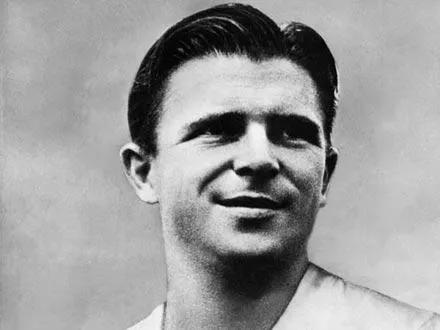The protagonist today is the greatest footballer in Hungarian history, Ferenc Pushkáš. Pashkas was born on 2 April 1927 in a middle-class family in the small town of Gisperz in Budapest, the Hungarian capital, whose original name was Ferenc Putzzede Bairo, and at the age of ten, his father Ferenc Ferenc Sr. changed their family name to Puskas.

In 1943, Puskas began his career at Honved FC Budapest, Hungary. During this period, he helped the team win 6 Hungarian football league championships and 4 individuals to win the Hungarian league top scorer.
We focus on the highlights of The Pushkash Real Madrid era, which joined Real Madrid on 11 August 1958. The 31-year-old Pushkash and Di Stefano formed the terrifying Real Madrid front, from 1959 to 1960, Puskas helped Real Madrid win the European Champions Cup, completing the five consecutive Champions League titles, and in the 1960 Champions League final, Real Madrid beat Frankfurt 7-3, Puskas scored four goals, becoming the first player in the history of the Champions League to score four goals in the final. From 1961 to 1965, Puskas helped Real Madrid win the La Liga title for five consecutive years and won the league's top scorer four times. In 1966, after winning his third Champions League trophy at Real Madrid, Puskas announced his retirement, and during his eight years with Real Madrid, Puskas scored 242 goals in 262 official matches for Real Madrid, and was the fifth top scorer in Real Madrid history, including 156 goals in 180 La Liga games and 35 goals in 41 Champions League games.
National:
At the 1954 World Cup, Pushkarsh led Hungary to a World Cup runner-up, and he himself was the Most Valuable Player of the World Cup. He himself led the Hungarian team to olympic gold medals, but professional players were not allowed to compete in Olympic football competitions at that time. Therefore, the gold content of pushkarsh's Olympic gold medal should be greatly reduced.